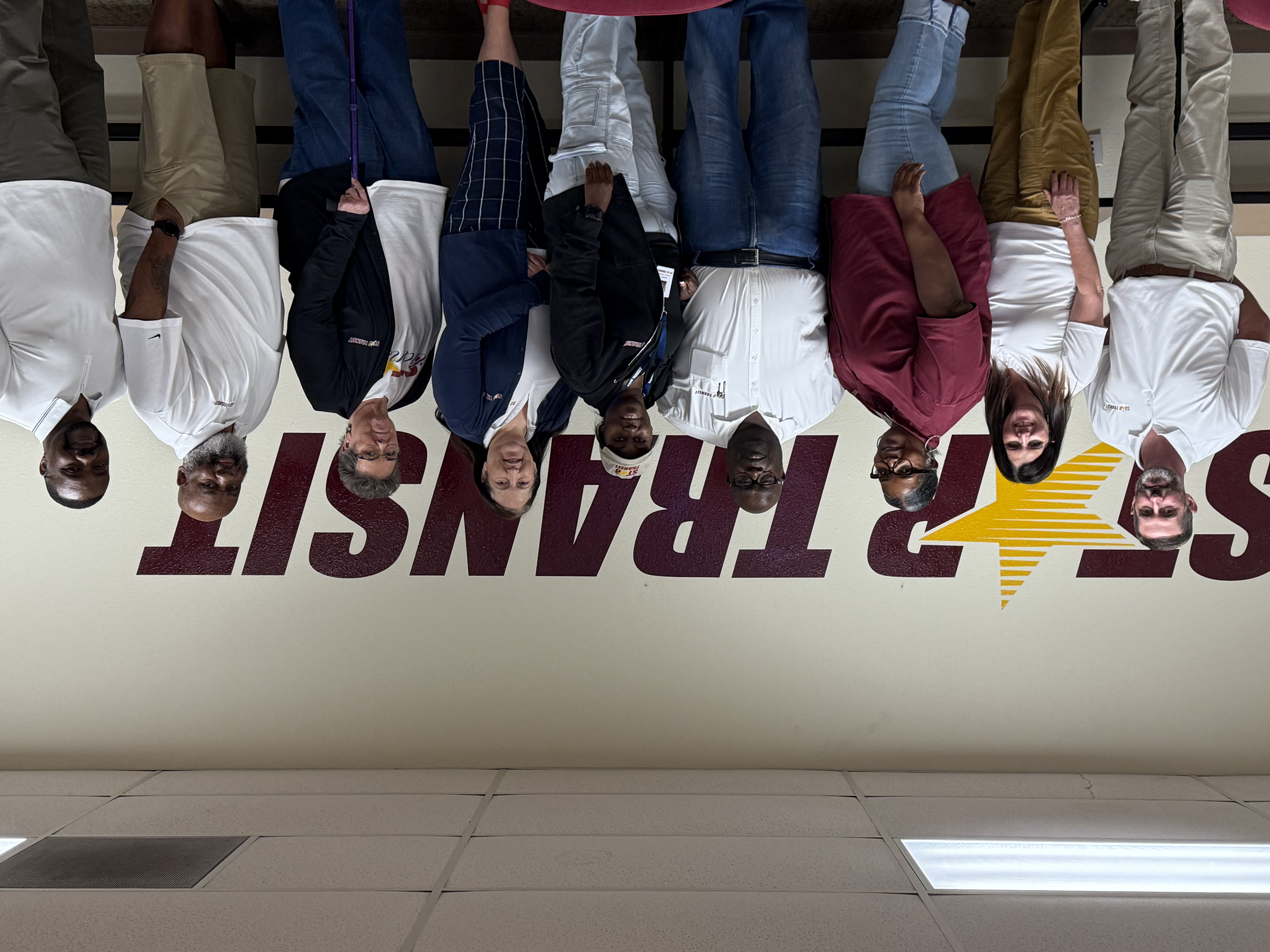New Apprenticeship & Mentorship Initiatives and How TWC Provides Support
TWC continues to collaborate with varied transit locations across the country to support apprenticeships and mentorships. Two recently established registered apprenticeship programs (RAPs) demonstrate ways in which these collaborations can work.
After speaking with TWC staff and using the information and resources provided through TWC’s Mentorship and Apprenticeship Office hours, High Valley Transit in Utah’s Wasatch Valley submitted materials to the state Department of Labor for a RAP for technicians, working through the process in record time. Submitted for approval in September, this program includes a partnership with the local justice center. The agency notes that “the justice center is already excited about our support and partnership and looking forward to sending referrals over to us.”
In September, Miami-Dade Transit and Transport Workers Union (TWU) Local 291 received approval from the Florida Department of Education for their bus maintenance RAP. TWC had the opportunity to work with the transit agency and union throughout their journey to registered apprenticeship, supporting them through an Apprenticeship Academy run by TWC in partnership with the Florida Department of Transportation and the Center for Urban Transportation Research and in sessions at TWC’s Making Connections 2024, along with in-person and virtual discussions.
TWU Local 291 President Joseph D’Elia said, “We relied on TWC throughout the process. Starting this program wouldn’t have happened without their support.” Stacy L. Miller, Director and CEO of Miami-Dade County’s Department of Transportation and Public Works, agrees: “We are deeply grateful to the Transit Workforce Center for their partnership and guidance as we build our first-ever Miami-Dade Transit Apprenticeship Program. Their expertise has been invaluable in helping us design a framework that invests in our people and strengthens our workforce for the future.” She also emphasizes the power of the labor-management partnership, noting that “Together with TWU Local 291 and our Joint Apprenticeship Committee, we are creating a pathway for the next generation of skilled transit professionals who will keep Miami-Dade moving.” The partners are now moving on to explore establishing a bus operator apprenticeship program.
As TWC team members work with transit agencies and their workforce partners on mentorship programs—sometimes in conjunction with apprenticeships, sometimes independently—it is exciting to see how agencies are working to institute, adapt, and scale strong mentorship programs tailored to their particular needs and experience.
Champaign-Urbana Mass Transit District (MTD) in Illinois started a bus operator mentorship program in 2023 initiated by Bus Operator Mentorship Coordinator Valerie Campo, with ongoing consultation with TWC staff and with the support of TWC’s American Transit Training and Apprenticeship Innovators Network (ATTAIN). After several years of experience and observation of how the program was working in their environment, particularly regarding mentor engagement, Valerie and the MTD team determined they could make the program even better. In September, MTD opted to select three individuals to mentor to all new operators. These mentors still have regular driving shifts three days a week, but the rest of their time is dedicated exclusively to mentoring. The agency reports much more mentor-operator contact, more operators remaining with the agency, fewer off-routes and reporting issues, and better retention of the skills the new operators had been taught in training. The refresher courses that MTD offers monthly—operators have to attend six in the course of their year—have been better attended and more impactful, which the agency feels can be directly attributed to the operators having more face-time with the mentoring team, which helps them see the ongoing relevance of the program.

As Star Transit in Terrell, Texas became interested in initiating an operator mentorship program for the first time, it looked carefully at its structure and workforce needs in delivering fixed-route, demand-response, and paratransit services across eleven counties across a large geographic service area. While many mentorship programs operate through central coordination, the “Guiding Star Mentor Program” will be led by three regional mentor coordinators, who are also current operators. They will mentor new hires while acting as coordinators for their respective regions. TWC provided mentor training in September to that group, along with Executive Director Tommy Hendricks and Deputy Executive Director Kim Britton, and other key members of the agency’s executive team from Human Resources, Transportation, and Safety/Training, demonstrating true organization-wide commitment to the program.
TWC technical assistance meetings and webinars emphasize that vehicle operator mentorship programs are totally customizable and differ from transit agency to transit agency. The needs of a small, rural transit agency will differ from those of a large, urban agency. Although there are common best practices, vehicle operator mentorship can be designed and implemented in ways that recognize each location’s unique attributes and best support the transit agency, its workforce, and the community served. Explore our website for apprenticeship and mentorship resources.
For more information or technical assistance on apprenticeship programs, contact Karitsa Holdzkom at kholdzkom@transportcenter.org. For mentorship programs, contact Maurice Beard at mbeard@transportcenter.org.





